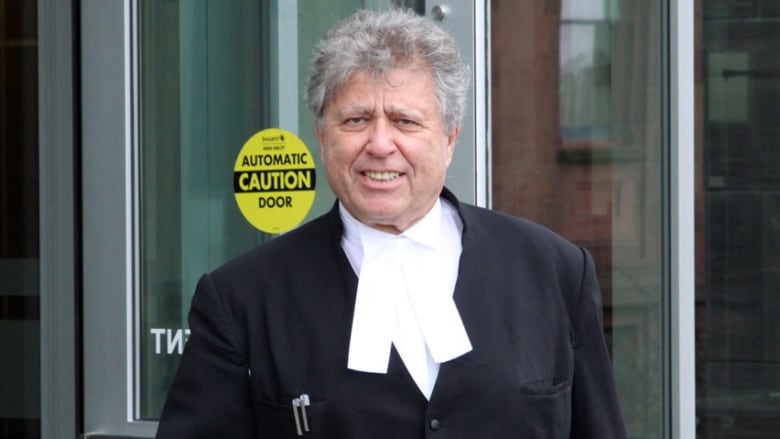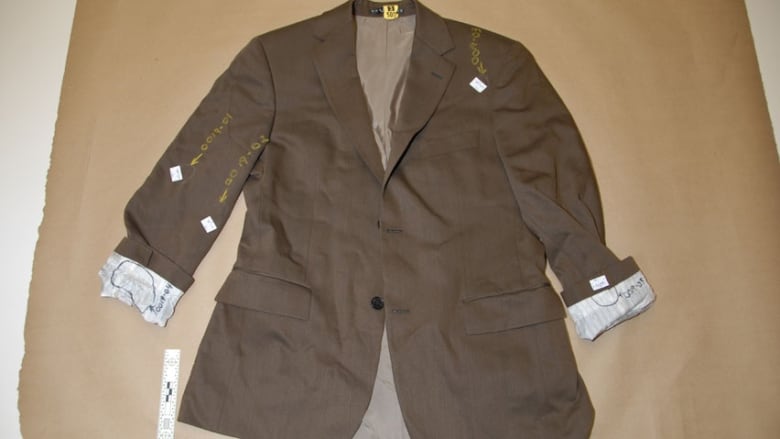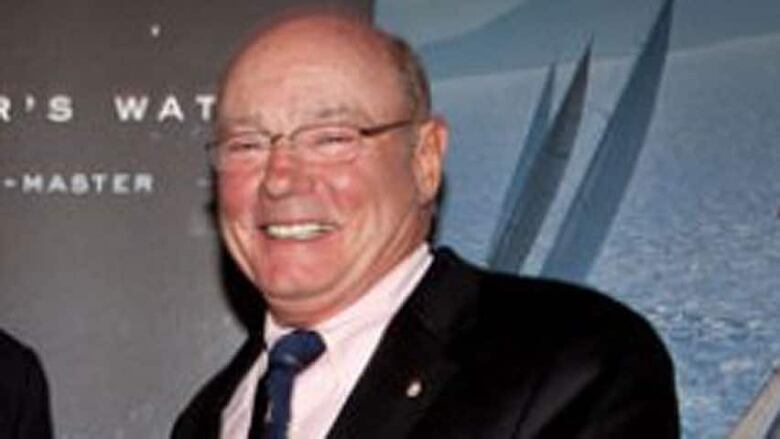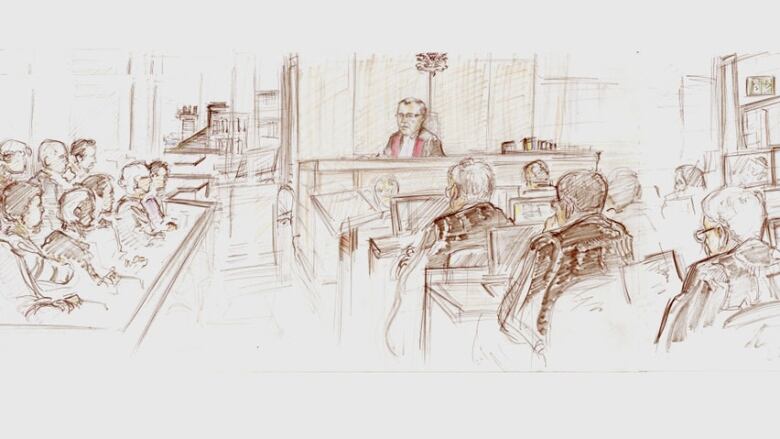Dennis Oland plans to appeal guilty verdict in father's murder
Defence team working to file appeal 'in the near future,' confirms lawyer Alan Gold

Dennis Olandplans to appeal his conviction for second-degree murder in the 2011 bludgeoning death of his father, prominent New Brunswick businessman Richard Oland.
"We have started the preparation to commence an appeal in the near future," defence lawyer Alan Gold confirmed in an email to CBC News on Sunday night.

The guilty verdict shockedmany people, who had followed the three-month trial closely, given the burden of proof that rested with the Crown in the largely circumstantial case.
-
Dennis Oland's charter rights violated by police, judge ruled
-
Dennis Oland's lawyers tried to get bloodstained jacket tossed as murder trial evidence
-
Dennis Oland wails uncontrollably after guilty verdict in father's murder
Golddid not revealthegrounds on whichOland'sthree-member defence team will seek leave to appeal.
"It would not be appropriate to discuss further details at this time," he said.
But University of New Brunswick associate law professor NicoleO'Byrnesaysthereare two main grounds of appeal ona conviction by a jurythe admissibility of evidence, and the judge's instructions tothejury.
Jacket tested under expired warrant

The Hugo Bossjacket, which was seized from Oland's bedroom closet on July 14, 2011, a week after his multimillionairefather's body was discovered, was a key piece of evidence in the Crown's case against him.
It had three small bloodstains on the right sleeve, the upper left chest and on the back and the DNA extracted from those areas matched his father'sDNA profile, the trial heard.
The estimated probability of selecting an unrelated individual at random from the Canadian Caucasian population with the same DNA profile isone in 20 quintillion, a Crown DNAexpert testified.

But Walsh ruled on June 10 that there was lawful authority for theforensic examinationof the brown jacket, as well asother items seized under the house warrant, and that the evidence should be admitted.To exclude it, he said,would bring the administration of justice into disrepute.
Information about the pretrial hearing hadbeen under a publication ban until last week, when the jury was sequestered to begin deliberations.
"A determination of admissibility of a piece of evidence is a question of law for the judge to determine. It must be decided on a standard of correctness which means that the accused in this case could appeal his conviction on this basis," said O'Byrne.

The Supreme Court of Canada ruled in 2009 that several factors should be taken into considerations when determining the admissibility of improperly obtained evidence, includingthe seriousness of the charter breach,the seriousness of the offence, andthe ability of the accused to receive a fair trial, said O'Byrne.
"The trial judge is given a lot of leeway on appeal because they are the ones hearing the arguments and examining the evidence first hand. An appellate court will be wary of substituting its judgment for a trial judge because they are learning about the evidence second-hand through legal arguments," sheadded.
Judge's instructions detailed

"Again, the judge's charge to the jury [would]be judged on a correctness standard as it is a question of law," said O'Byrne.
But Walsh sought input from both the Crown and defence in preparing his detailedinstructions to the jury, which took two days to deliver. The written version was 204 pages.
During his instructions,Walsh stressedthatOlandwas presumed innocent, and that it was up to the Crown to prove its case beyond a reasonable doubt. It is not enough to believe the accused is probably or likely guilty, he had said.
An accused cannot appeal a decision because they do not like the result. There needs to be a substantive reason. This is hard, if not impossible, to do when there are no reasons for judgment.- Nicole O'Byrne, associatelaw professor
O'Byrne says it isdifficultto appeal a decision made by a jurybecause juries do not give reasons for their decision.
"An accused cannot appeal a decision because they do not like the result. There needs to be a substantive reason. This is hard, if not impossible, to do when there are no reasons for judgment."
Walsh told the jurors the case against Oland, "in its totality, is a circumstantial one."
Oland was the last known person to see his fatheralive during a meeting at his Saint John investment firm office on Canterbury Street on July 6, 2011.
His father's body was discovered in his office the next morning, lying face down in a large pool of blood.The 69-year-oldhad suffered 45 sharp and blunt force injuries to his head, neck and hands. No weapon was ever found.
Oland told police he was wearing a navy blazer on the night in question, but video surveillance and witness testimony showed he was wearing a brown jacket.
The Crown has suggestedOland's financial problemsand hisfather's extramarital affairwere possible motives in the slaying.
Oland testified in his own defence, saying he had no reason to kill his father, that he loved him and misses him.
Family support unwavering
His defence team appeared confident in its case following Oland'stestimony and decided againstcalling three more witnesses his wife, Lisa Andrik-Oland, sister, Jacqueline Walsh, and mother, Connie Oland Richard Oland's widow.
"You are no closer to knowing who killed Richard Oland today than you were when you all walked into Harbour Station that first Tuesday after Labour Day," Gold had said in closing arguments to the jury.
Oland's family continues to stand by him and hinted at an appeal in statements issued shortly after the verdict Saturday.
"Our faith in Dennis's innocence has never wavered and the jury's decision has not changed that belief," said his mother.
"We will now discuss our options with the legal team.We sincerely believe justice will eventually be served," she said.
His uncle, Derek Oland Richard Oland's brother said "all Oland family members are certain Dennis had nothing to do with the death of his father."
"We will support him and his family members through the course of whatever legal actions will unfold."
Oland, who has two daughters, a son, and a stepson,will be sentenced on Feb. 11, 2016,at the Saint John Law Courts building.
The judge has ordered a pre-sentence report.
Second-degree murder carries an automatic life sentence, butparole eligibility can rangebetween 10 and 25 years. The jury unanimously recommended the minimum 10 years beforeOlandbecomes eligible for parole, but the judgedoes not have to follow that recommendation.
Appeals must be filed within 30 days of sentencing.












_(720p).jpg)


 OFFICIAL HD MUSIC VIDEO.jpg)
.jpg)



























































































